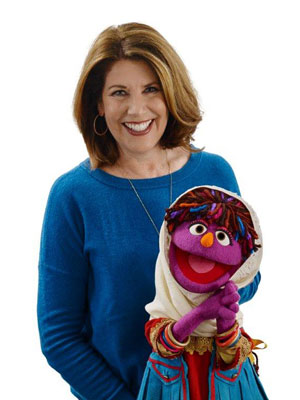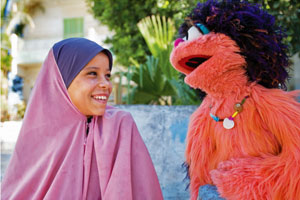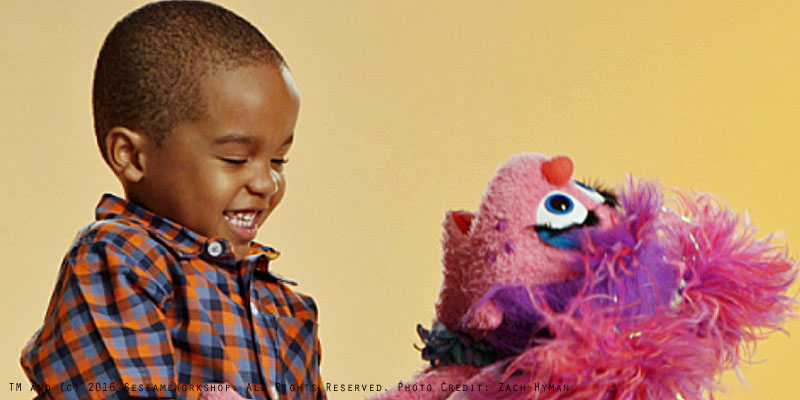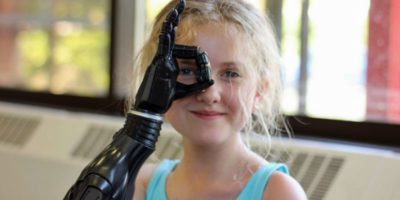Sherrie Westin is Executive Vice President of Global Impact and Philanthropy at Sesame Workshop, running the philanthropic arm of the non-profit organisation behind Sesame Street, and overseeing Sesame’s social impact work targeting vulnerable children in countries around the world, from Sub-Saharan Africa to India to the United States. Sherrie’s dynamic career spans media, private sector, non-profit and public service, and in addition to her current role she also serves as a director of the US Fund for UNICEF.

“…Last year, we launched a major autism initiative called See Amazing in All Children. In the US, one in 68 children is diagnosed on the autism spectrum, and there was a clear need for content that would give families with children with autism tools to help make every day moments easier, as well as materials to help reduce the stigma and misconception surrounding autism…”
Sherrie, please can you tell us about your career to date and what made you want to work in the philanthropic space?
I’ve been fortunate to have had many great opportunities over the course of my career, from the private sector, to media, to The White House. But my most rewarding work, by far, has been in the non-profit sector. I have always cared a great deal about children’s issues and after I became a mom, I decided that I wanted my career to be focused on children as well. That’s when I was fortunate enough to join Sesame Workshop – the non-profit organisation that produces Sesame Street around the world. It was the perfect place to focus on work that is making a meaningful difference in children’s lives.
What does your current role at Sesame Workshop involve on a day to day basis?

As the Executive Vice President of Social Impact and Philanthropy, I run the philanthropic arm of Sesame Workshop, leading Sesame’s social impact to help the most vulnerable children around the world. The travel to visit our local productions and projects in places like India or South Africa is always the most rewarding. And we believe we can truly make a difference in places like Afghanistan and Bangladesh, where we are reaching children who often have no other means of quality pre-school education.
I am often on the road promoting our work and my favourite events are those where I have the opportunity to appear with one of our engaging characters, like Chamki from India. Chamki is a delightful little girl Muppet who inspires girls in India to learn and dream big. We recently appeared together at the “Women Deliver” conference in Copenhagen to showcase our work on girls education.
But one of the other great privileges of my work is to work with the young women at Sesame, in both our domestic and international groups, who inspire me each and every day with their enthusiasm and dedication.
What is the background of Sesame Workshop?
Back in 1968, Sesame Street founders Joan Ganz Cooney and Lloyd Morrisett set out to see if the much maligned medium of television could be used to teach young children. They conducted research, secured funding, and succeeded in creating an iconic programme that transformed the nature of children’s television.
One of the core principles upon which the show was founded was to give disadvantaged children the same educational foundation that those from more privileged homes had. The pilot aired in 1969 and within a year had reached millions of pre-schoolers in the United States.
Ironically, what Joan thought of as the quintessential American program had universal appeal, and soon after there was demand for local Sesame Street productions in Mexico, Brazil and Germany. Today Sesame Street is seen in over 150 countries, making it the longest street in the world!
What sort of topics do your initiatives cover?
We believe that early education is the solution to many of the world’s most challenging issues, and the key to giving every child the best chance for success. Our social impact work focuses on the needs of the most vulnerable children by providing access to early education, critical health lessons, and tools for tough situations.
Our targeted initiatives offer help and hope to families facing serious challenges. For example, internationally, local versions of Sesame Street are designed to meet the unique needs of children in that county, within their own context and culture.
We address a wide range of critical health issues in places where illness and disease prevent children from attending school and, worse, threaten millions of young lives. We are tackling water, sanitation, and hygiene (WASH)-related illness with targetted programmes in communities across Bangladesh, India, and sub-Saharan Africa. Teaching children simple behaviours, like hand washing and wearing shoes to the latrine, can prevent diarrheal disease, pneumonia, and other life-threatening conditions. What’s more, research shows that children often become the catalyst for their families and entire communities to take these healthy lessons to heart.
In the United States, we have tackled tough topics like divorce, incarceration of a parent, and the loss of a loved one – topics that adults often find difficult to talk about with children. Last year, we launched a major autism initiative called See Amazing in All Children. In the US, one in 68 children is diagnosed on the autism spectrum, and there was a clear need for content that would give families with children with autism tools to help make every day moments easier, as well as materials to help reduce the stigma and misconception surrounding autism. And the response to See Amazing in All Children has indeed been amazing.

Another area of focus of our international work is girls’ education. In places where girls are disproportionately left behind, we help shape children’s earliest perspectives on the abilities and potential of girls. Through the power of media and Muppets, we can not only impact how girls are perceived, but also how they perceive themselves.
We know that ingrained social attitudes which surround girls from birth are often absorbed by the girls themselves, limiting their aspirations. Through television, radio and mobile platforms, we are reaching young girls, who often have no other means of quality education. In our local productions, we develop strong female Muppets with vibrant personalities to help breakdown gender stereotypes. And our engaging girl Muppets serve as powerful role models, showing the importance of going to school and dreaming big! Characters like Chamki in India, Raya in Bangladesh and Nigeria, and most recently, Zari in Afghanistan.
With all of our work, the proof is in the research results. Perhaps most encouraging on this front is the data we have that shows that young boys who watch and listen to these programmes test significantly higher in gender equity attitudes. So we are not only inspiring young girls, but showing young boys that it is OK for girls to go to school and have various roles and responsibilities, planting the seeds for real societal change.
What is your geographical reach and how do you adapt your messages for different cultures?
We reach children in more than 150 countries, but perhaps our most impactful work is in those countries where we produce local versions of Sesame Street. We bring together local educators, advisors, and producers to ensure these efforts are tailored to the context and culture of each country – using all forms of media, from television and radio, mobile technology, to mobile viewings – to reach children wherever they are, however we can.
What sort of an impact do your initiatives have on the lives of children around the world and how do you measure this?

Sesame Street is the most researched show in television history. We recognise the power of early learning and Sesame Workshop has consistently delivered measurable results across countries and learning outcomes. Earlier this spring, a book called The Sesame Effect was published. It was the first comprehensive look at the educational outcomes of Sesame Street in low and middle-income countries.
The evidence presented in the book shows that the adaptability of the Sesame Street model, the way we work within each unique setting, and our ability to foster understanding leads to success in reaching and teaching millions of children. In fact, in a meta-analysis of our international co-productions, the researchers concluded that “Sesame Street is an enduring example of a scalable and effective early childhood intervention.”
What is next for you and Sesame Workshop and how can our readers get involved?
One of the things we’re most excited about is our newly announced partnership with the International Rescue Committee (IRC). We have a long history of tackling tough issues from a child’s perspective, helping children to build resiliency skills and giving caregivers tools to help children cope with challenging situations.
We are bringing the same approach to address the needs of refugee children and their families. More than 60 million people are displaced worldwide, and over half of them are children. It’s hard to imagine a situation as tough on young children as living in an area of conflict or being displaced from their homes. The trauma and stress caused by exposure to violence, displacement, and neglect can have life-long repercussions.
Together with the IRC, we will provide invaluable early education to young refugee children, and strategies for their parents, often stressed themselves, to better engage with their children in these difficult times. And our lovable Muppets add joy, bringing laughter and learning to children who need it most.
http://www.sesameworkshop.org/
https://twitter.com/sesameworkshop
https://www.facebook.com/SesameWorkshop





